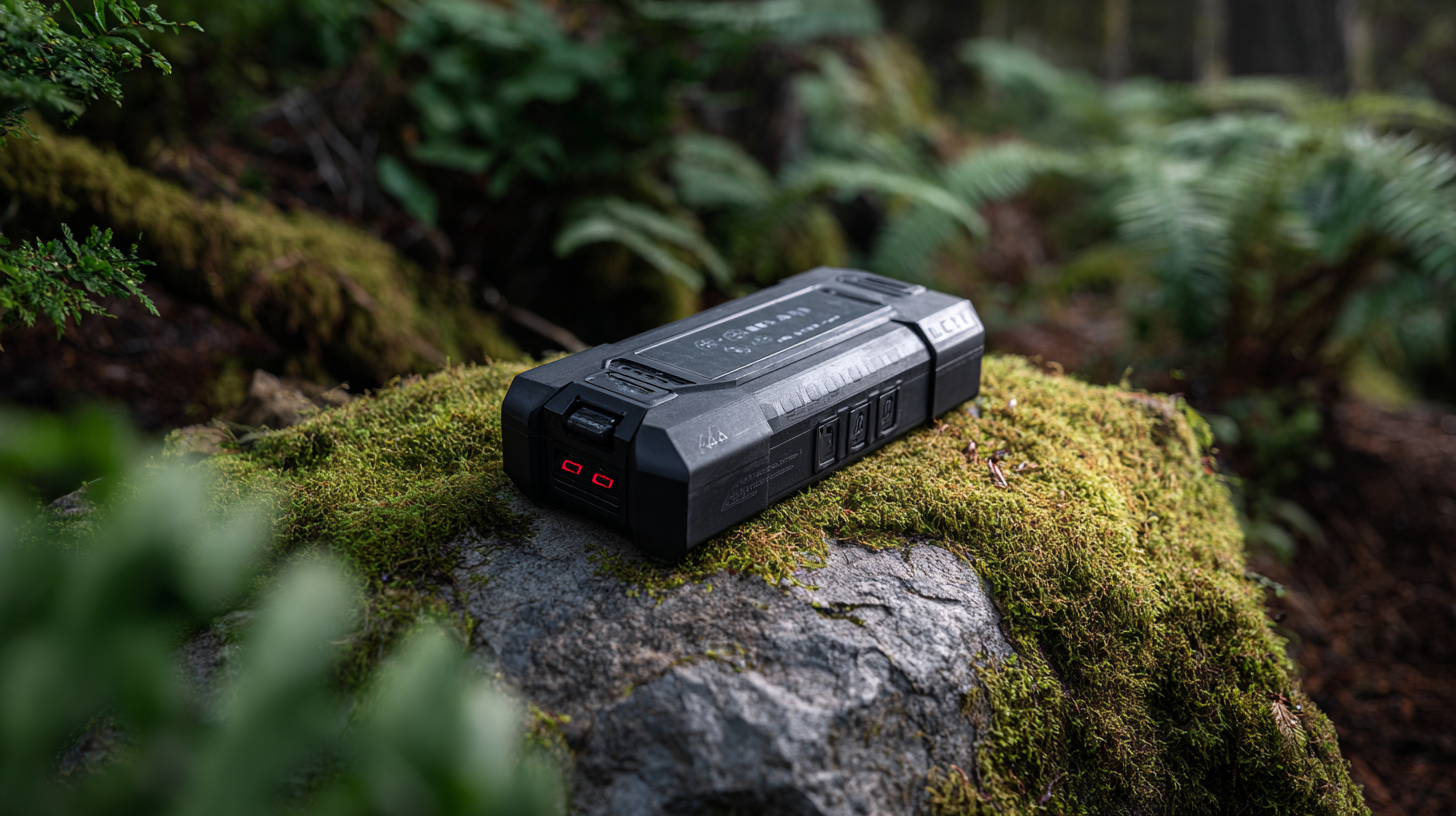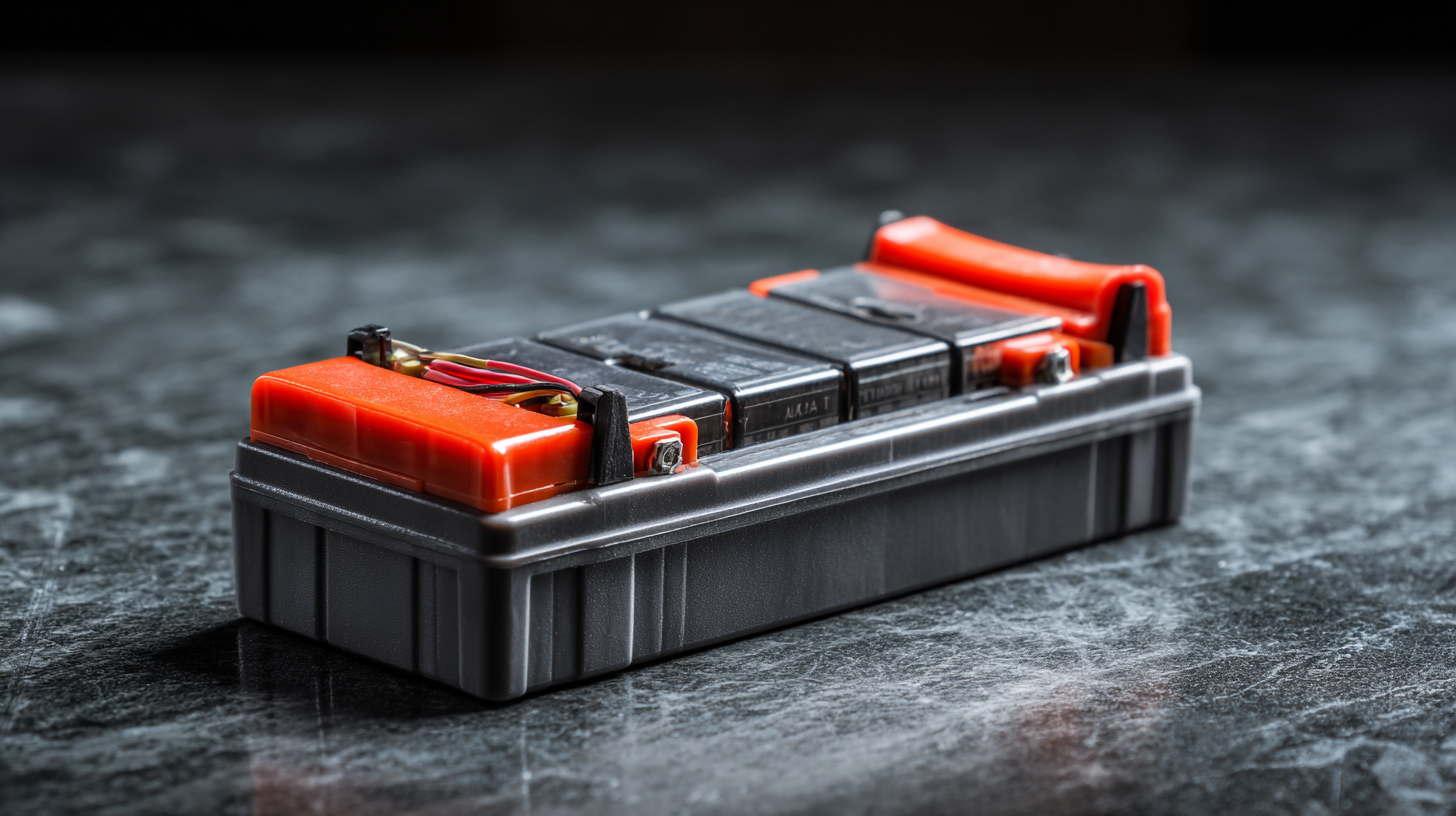In the rapidly evolving landscape of battery technology, the 7.4v Lithium Ion Battery Pack stands out as a crucial component in various applications, from consumer electronics to electric vehicles. According to a report by Allied Market Research, the global lithium-ion battery market is projected to reach $129.3 billion by 2027, growing at a CAGR of 17.0% from 2020. This growth underscores the increasing demand for reliable and high-quality battery solutions. As manufacturers strive to meet these demands, understanding the features and applications of different types of lithium-ion battery packs becomes imperative. This guide aims to unlock insights into sourcing quality suppliers for the 7.4v Lithium Ion Battery Pack, ensuring manufacturers can make informed decisions that align with industry standards and technical requirements. By examining key characteristics and their suitable use cases, this blog will provide a comprehensive outlook on optimizing battery selection for varied applications.

When sourcing high-quality 74V lithium-ion battery packs, several key factors play a critical role in ensuring optimal performance and reliability. First and foremost, understanding the specifications of your application is essential. This includes considering factors such as energy density, charge cycles, and discharge rates. A thorough assessment of these technical requirements will guide you in selecting suppliers who can meet your demands.
Another important aspect is the supplier’s reputation and experience in the industry. Look for manufacturers with a proven track record in producing lithium-ion batteries, specifically 74V packs. Reading customer reviews, case studies, and certifications can provide insights into their quality control processes and reliability. Engaging directly with potential suppliers to discuss their manufacturing capabilities and after-sales support can also help you establish a good rapport and ensure long-lasting partnerships. By concentrating on these key elements, you can unlock the potential of sourcing the best quality 74V lithium-ion battery packs tailored to your needs.
The global lithium-ion battery market is on a significant growth trajectory, projected to expand from $51.57 billion in 2023 to an impressive $139 billion by 2024, with a remarkable compound annual growth rate (CAGR) of 21.74% during this period. This surge is primarily driven by the increasing demand for electric vehicles (EVs), which are expected to remain the dominant segment for lithium-ion batteries over the next decade. As EV adoption accelerates, the necessity for high-quality battery packs will intensify, prompting manufacturers to seek reliable suppliers that can meet their stringent requirements.
In addition to the rise of lithium market, the solid-state battery sector is also witnessing rapid advancements. The market is forecasted to grow from $9.896 million in 2024 to an astounding $1.3598 billion by 2032, highlighting the industry's shift towards safer and more efficient energy storage solutions. As manufacturers look to capitalize on this burgeoning segment, understanding global market trends and forming strategic partnerships will be crucial for success in this competitive landscape. The substantial growth across various battery technologies signals a transformative phase in energy storage, underpinning the need for continual innovation and supplier quality assurance.
| Region | Market Size (USD Billion) | Growth Rate (%) | Key Applications | Trends |
|---|---|---|---|---|
| North America | 3.5 | 8.2 | EVs, Consumer Electronics | Increased EV adoption |
| Europe | 4.2 | 9.0 | Renewable Energy, EVs | Sustainability initiatives |
| Asia-Pacific | 8.0 | 10.5 | Consumer Electronics, Industrial | Rapid industrialization |
| Latin America | 1.5 | 5.0 | Energy Storage, Automotive | Emerging energy policies |
| Middle East & Africa | 0.8 | 4.0 | Telecommunications, Automotive | Investment in infrastructure |
When sourcing quality suppliers for a 74v lithium-ion battery pack, understanding supplier certifications and manufacturing standards is essential, especially in the Chinese market. Recent initiatives, such as the National Intelligent Manufacturing Standard System Construction Guide (2024), emphasize the importance of adhering to established standards to ensure product quality. By 2026, these guidelines aim to harmonize manufacturing processes, which can significantly enhance the credibility of suppliers in the industry. Manufacturers that align with these standards not only guarantee quality but also demonstrate a commitment to sustainable practices.
The emphasis on sustainability is increasingly relevant in supply chain assessments. As organizations aim to reduce their carbon footprint, the ability to accurately track supply chain emissions has become crucial. Suppliers that engage with green certifications and sustainability evaluations are more likely to be viewed favorably by stakeholders seeking eco-friendly solutions. Events like the Supply Chain Sustainability and Innovation Conference highlight the growing demand for transparent supply chains, encouraging collaboration among leading innovators to ensure widespread adoption of best practices. Engaging with suppliers that prioritize sustainability and adhere to recognized certifications can position businesses advantageously in an increasingly competitive market.

In today's fast-paced technological landscape, the sustainability of lithium-ion battery packs, such as the 74v variant, plays a pivotal role not only in environmental impact but also in the longevity of energy solutions. Understanding the battery lifecycle is essential for making informed decisions about sourcing quality suppliers. The lifecycle encompasses various stages, from raw material extraction through production and usage, to eventual recycling or disposal. Each phase generates its own carbon footprint, making transparency and responsibility from suppliers crucial for achieving true sustainability.
Moreover, the shift towards a more sustainable future prompts manufacturers to adopt practices that minimize environmental harm. By prioritizing suppliers who adhere to ethical sourcing and production methods, businesses can significantly enhance the sustainability of their battery solutions. This proactive stance not only mitigates ecological damage but also strengthens brand reputation and consumer trust. In essence, the importance of sustainability in the battery lifecycle is not merely a trend but a necessary commitment for any organization looking to thrive in the modern marketplace.
When evaluating 74V lithium-ion battery packs, performance metrics are crucial in discerning the optimal choice from multiple manufacturers. Key metrics to focus on include energy density, cycle life, charge time, and thermal stability. Energy density indicates how much energy the battery can store relative to its weight, making it a fundamental factor for applications requiring lightweight solutions. Manufacturers with higher energy density will often provide packs that deliver sustained performance without adding excessive weight.

Cycle life, another vital metric, refers to the number of charge-discharge cycles a battery can endure before its capacity significantly diminishes. This aspect is particularly important for industries relying on longevity and cost-effectiveness. Additionally, charge time affects how quickly the battery can be replenished after use; shorter charge times can significantly enhance operational efficiency. Thermal stability is equally important, as it directly impacts safety and reliability during high-performance usage.
A comparative study of these performance metrics across various manufacturers reveals significant differences that can influence purchasing decisions. By closely examining these factors, stakeholders can make informed choices that meet their specific needs while ensuring they select a high-quality 74V lithium-ion battery pack. An objective analysis will allow for unlocking the potential of superior suppliers in this competitive market.


